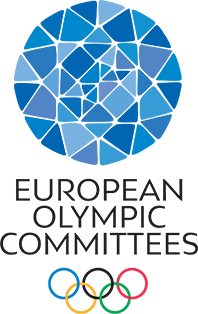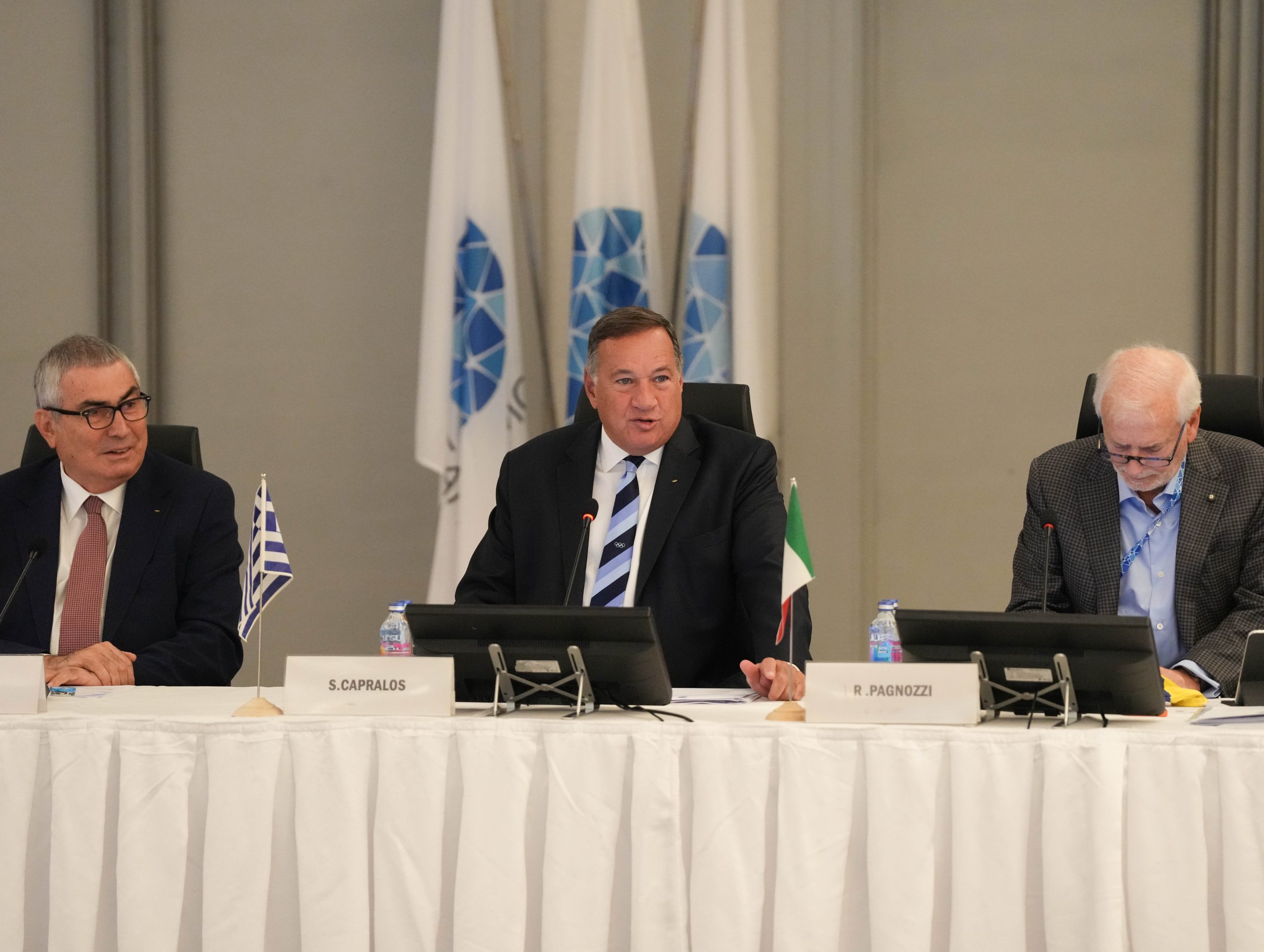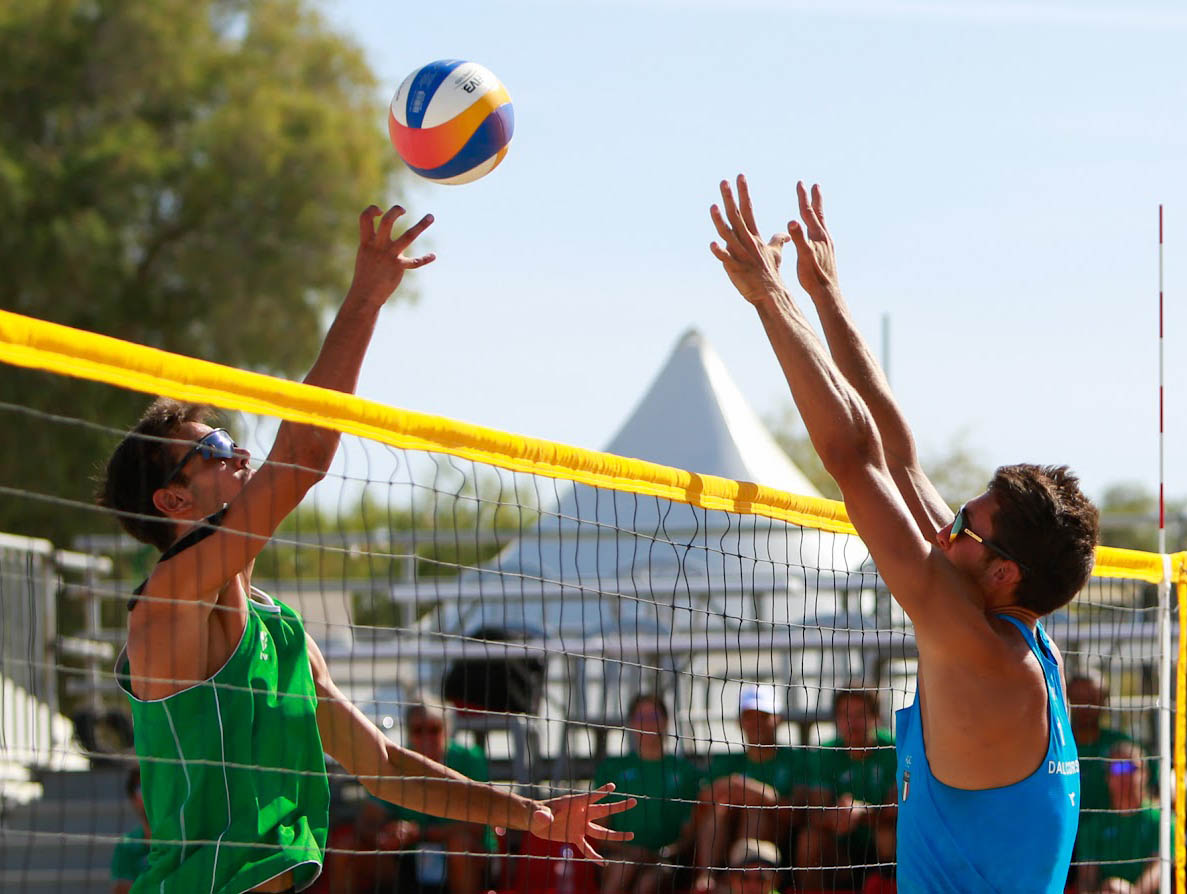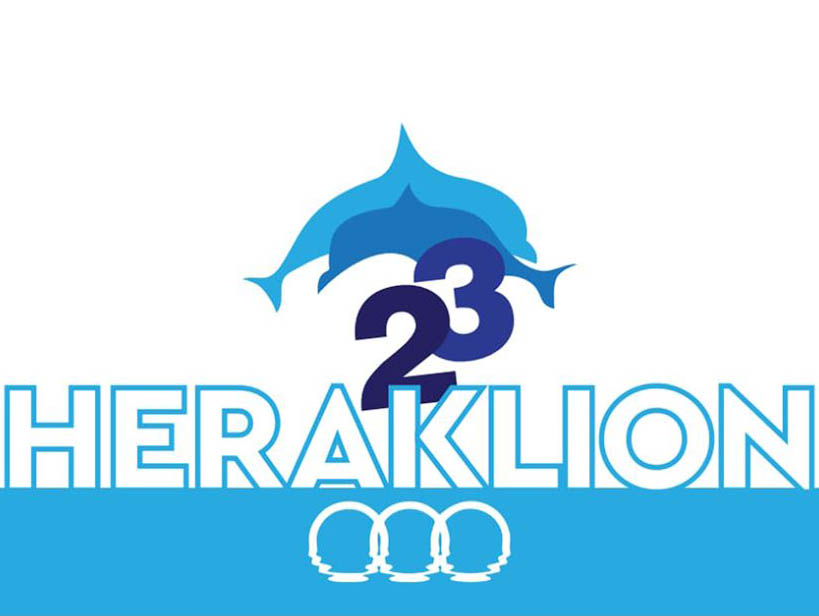1. IOC/Germany – IOC President Jacques Rogge Guest of German Chancellor Gerhard Schröder
German Federal Chancellor Gerhard Schröder invited IOC President Jacques Rogge to Berlin for talks on 24 January 2002. During the half-hour discussion the subjects of the international fight against doping and sport in the EU Treaties were in the foreground.
There was considerable agreement on the subjects discussed: Schröder confirmed to Rogge his support on the issue of anchoring sport in the Treaties of the EU by 2004. This, according to Rogge, is of great significance, especially for an effective, EU-wide anti-doping policy.
Within the framework of the discussion Schröder also did not neglect to advertise Germany’s candidature for the 2012 Olympic Games.
2. EU / SPORT – EU Commissioner Viviane Reding Presents Priorities for the Year 2002
The EU Commissioner responsible for sport, Viviane Reding, presented the priorities of the Directorate General for Education and Culture for the year 2002 to the Culture Committee of the EP at the end of January.
– Life-long learning:
o Recognition of qualifications and competences
o Vocational advice (introduction of a European Internet portal by the end of 2002)
– Youth:
o Pilot projects in South-Eastern Europe
o Simplification of the integration of the accession candidate countries
o Actions against racism and xenophobia
– Sport:
o Emphasis on the educational value of sport and its significance for integration
o Decision about the “European Year of Education through Sport 2004” by autumn 2002, in order to be able to carry out preparatory measures in 2003
o In autumn 2002: Proposal of the Commission for a programme for fighting doping, which could have the following focal points: improvement of cooperation between the States and the sport organisations; strengthening coordination in the area of scientific research; support for actions for education, information and prevention
– Media:
o Directive “Television without Frontiers”: a renewed discussion of the Guideline and its revision (background: in September 2000 the EP demanded a formal revision of the Directive for 2002, in order to take into account technological developments and the service provisions on offer in the digital sector (Veltroni Report)).
3. EP / Elections – Pat Cox is New President of the European Parliament, Michel Rocard is New Chairman of the CULT Committee
The Irishman Patrick Cox (ELDR) was elected on 15 January 2002 as the new President of the European Parliament in Strasbourg and therefore replaced the Frenchwoman Nicole Fontaine (EVP) in the rotation. The legislative period of the EP amounts to five years. By tradition the two major wings of the Parliament each provide a President for two and one-half years.
In addition to Cox the following people stood for election: Jens-Peter Bonde (EDU, DK), David Martin (SPE, UK), Gérard Onesta (GREENS/EFA, F) and Francis Wurtz (KVEL/NGL, F). Cox, who won in the third voting round with 298 votes against the Scotchman Martin (237 votes), has been a Member of the EP since 1994, since 1998 as the Chairman of the ELDR party.
In connection with the elections for the presidency, positions in the committees were also newly elected. The new President of the CULT Committee, which is responsible for sport, is the former French Prime Minister Michel Rocard, Member of the EP since 1994. The former Chairman of the CULT Committee, Giuseppi Gargani (EVP, I), was chosen as Chairman of the Committee for Legal Affairs and the Internal Market.
4. EU / SPORT – Doris Pack is Rapporteur for “European Year for Education through Sport 2004”
The sport policy spokesperson of the EPP party in the EP, Doris Pack, has been appointed as the Rapporteur for the “European Year of Education through Sport 2004”.
Doris Pack, known to sport organisations as a committed advocate for the support of the value of sport in the EU, initiated the “Report on the role of the European Union in the Area of Sport” in 1997, in which she called for a European Year for Sport.
In October 2001 the Commission put forward a corresponding proposal to the European Council and the EP for carrying out this action year. Both EU institutions must vote on the proposal according to the co-decision procedure. A decision on the part of the Council could occur in the second half of 2002.
The implementation of preparatory measures and supporting actions is already planned for the year 2003. For this ca. 20% of the budget will be released (background information: the proposal for the total budget amounts to 11.5 million EUR). in the final call for the submission of project proposals is meant to published in 2003 as well, so that the measures can start up in the spring of 2004.
The Commission’s proposal for the “European Year of Education through Sport 2004” on the Internet:
http://europa.eu.int/eur-lex/en/com/pdf/2001/en_501PC0584.pdf
5. EU / TELEVISION TRANSMISSION – Austrian List of Major Events to be Protected Published
In the Official Journal of the European Communities the Austrian Federal Act “on the exercise of exclusive television broadcasting rights (Fernseh-Exclusivrechtegesetz – FERG)” has been published. This law, which already came into force as from 01.08.2001, corresponds to the measures taken by Austria in reference to the use of exclusive rights for the television transmission of events important to society in accordance with Article 3(a) of the EU Directive “Television without Frontiers” (89/522/EEC, amended by 97/36/EC).
The Directive “Television without Frontiers” forms the legal frame of reference for the free movement of services for television services in the Union, and fosters the development of a European market for television and other related activities.
At Community level it coordinates the national legislation among other things in the areas of jurisdiction for the administration of justice in relation to television broadcasts, access of the viewers to major (sport) events, television advertising and sponsoring as well as the protection of youth.
Although transposition is not obligatory, in addition to Austria, Denmark, Italy, Great Britain and Germany have already transposed the Directive into national law.
Austria’s list of major events to be protected – that is, to be transmitted in television with free reception – contains the following events:
1. The Summer or Winter Olympic Games;
2. FIFA World Cup football matches (for men) if the Austrian national team is involved, as well as the opening match, the semi-finals and the final of the football World Cup (for men);
3. European Championship football matches (for men), if the Austrian national team is involved, as well as the opening match, the semi-finals and the final of the football European Championship (for men);
4. The Final of the Austrian Football Cup;
5. FIS World Alpine skiing championships;
6. FIS World Nordic skiing championships;
7. The Vienna Philharmonic Orchestra’s New Year Concert;
8. The Vienna Opera Ball.
The publication of the Federal Act in the Official Journal of the European Communities can be requested by e-mail if desired: info@eu-sports-office.org
6. EU / DOPING/RESEARCH – Interactive Web Site Promoted as Contact Point for Fighting Doping
As early as March 2001 a cooperative project for the fight against doping called CAFDIS was brought into being by the International Olympic Committee (IOC), the national Olympic Committees of France, Ireland and Italy as well as the Olympic Committees of other countries and the International Cyclist Union. The objective of CAFDIS (Concerted Action in the Fight against Doping In Sport) is to concentrate the efforts of the internal sport movement and to optimise the resources and investments in research.
The implementation of the project supported within the framework of the EU research programme GROWTH is divided into the following areas (“Packages”): project management; future trends in doping; research and development; laboratories; information & education; software management.
On 18 January 2002 the new interactive web site (Package 5) was presented. The goal of this Internet page is to make available information from all the sources – and for all the people and institutions – that are decisively involved in fighting doping in sport. Here users can publish information about the latest breakthroughs and news on the one hand, and on the other hand can also retrieve information, for example up-to-date comprehensive lists of prohibited substances.
In this regard the plan is to set up several platforms that are aimed at the various actors: research and the pharmaceutical industry, anti-doping laboratories, athletes and trainers, and others.
CAFDIS on the Internet: http://www.cafdis-antidoping.net
* * *

















